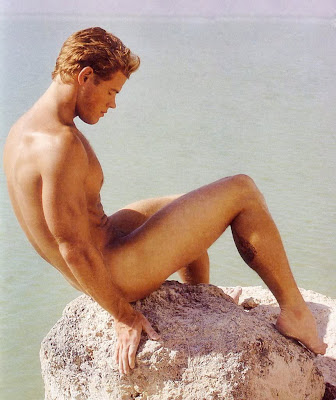Sad news, with the appearance of obituaries for Admiral of the Fleet Sir Henry Leach.
Leach was one of that breed of Nelsonian commanders that Britain throws up from time to time. He found himself in the position of First Sea Lord (what a brilliant title) and head of the Royal Navy at the time Argentine forces invaded the Falkland Islands.
The Defence Secretary, John Nott, did not believe it was possible to recapture and hold the islands with an 8,000 mile long supply chain. The Prime Minister, Margaret Thatcher, dithered. At a critical moment, Leach pushed himself into a meeting of the two and he was asked for his advice -- could we re-take the islands by force? Famously he replied that we could do it, and that in his view we should.
That last statement went far beyond what was permissable for the military when advising politicians, but Thatcher asked what he meant. He replied that if we didn't do it, or if we half-heartedly did it and were not completely successful, "we should be living in a different country which counts for very much less [in the world]".
Leach had certainly learned the lessons of the Great War, when the two mightiest navies in the world -- British and German -- circled each other like wary wrestlers, never properly coming into contact, both sides more concerned to protect the integrity of their precious forces than actually to use them in combat.
Given the unpreparedness of the Royal Navy in 1914 this was probably a wise thing for the British to do, but in the 1980s the Navy was in much better shape. And Leach was made of sterner stuff than some of his more nervous predecessors: he succinctly expressed his view as "what the Hell's the point of having a navy if you're not going to use it?".
Leach was the prime mover, the leader of the four admirals who, between them, drove Argentina from the Falklands, albeit at a considerable price to both sides. Those four -- Leach, Terence Lewin, John Fieldhouse and Sandy Woodward -- masterminded one of the most unlikely imperial wars of modern times. Credit for their achievements was mostly given to Thatcher, for reasons which remain inexplicable to me, and Leach became a severe thorn in her government's side over the succeeding years as he campaigned against what he saw as unjustifiable and iniquitous cuts in the Royal Navy.
Ironically, after the cuts he had argued against a rather capable navy was left behind, but one which now has major strategic gaps: my own view is that there are still too many ultra-high-tech mega-boats (the vast new Daring Class destroyers, for instance,
above) and far too few cheaper, corvette-sized craft and patrol boats, particularly in a world that is moving to asymmetric warfare with a greater emphasis on a maritime policing role.
A few navies have tentatively explored this new approach -- Denmark's "mother" ship, HDMS Absalon, is a fascinating experiment
(above and below) -- but the Royal Navy remains utterly committed to the big, complex ship.
That was the Absalon at speed
The helicopter carrier HMS Ocean is a brilliant example of a new sort of warship:
... as are the amphibious warfare ships HMS Albion and Bulwark:
...and the Royal Navy's fleet of nuclear attack submarines provide maritime strength that is pretty much unsurpassed anywhere:
So much for the very big guns, the River class offshore patrol boats are an interesting concept, using commercial shipbuilding practices to produce smaller ships which can be adapted to a variety of roles.
Their primary purpose is fisheries protection, but they have also been designed with Antarctic patrol work in mind (one of them, HMS Clyde, is larger than the other three, and may be a useful model for a future corvette):
But there are just four of them (and the three smaller vessels are more suited for offshore work than deep ocean).
The Navy did do some interesting thinking on a future corvette sized craft, and a prototype -- the RV Triton -- was built to test some of the new ideas.
A trimaran design (intended to provide much greater stability in rough seas, to make it a surer weapons platform and provide easier landing for a helicopter), Triton proved rather capable. It now works for the Australian Customs Service as an armed patrol vessel:
Radical though this thinking is, it is on a par with what some other navies have also been considering:
And ships like this:
However, there seems little prospect of such new approaches forcing the Royal Navy to abandon its solely "big ships" policies for something that may be more flexible and adaptable.
But a ten year absence of aircraft carrier capability will be sorely missed, now the government has scrapped the Navy's existing carriers and fleet of Sea Harrier aircraft, and the new Queen Elizabeth class carriers currently under construction are more than a decade away (with planes not yet ready for them, either, and one of the two now due to go straight into mothballs, assuming it can't be sold).
A Falklands War today would be unlikely to fall so easily in Britain's favour, no matter how many Henry Leaches we had in command.





























































